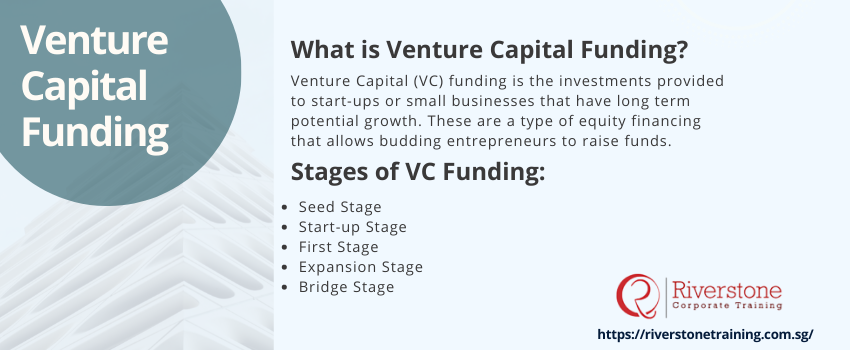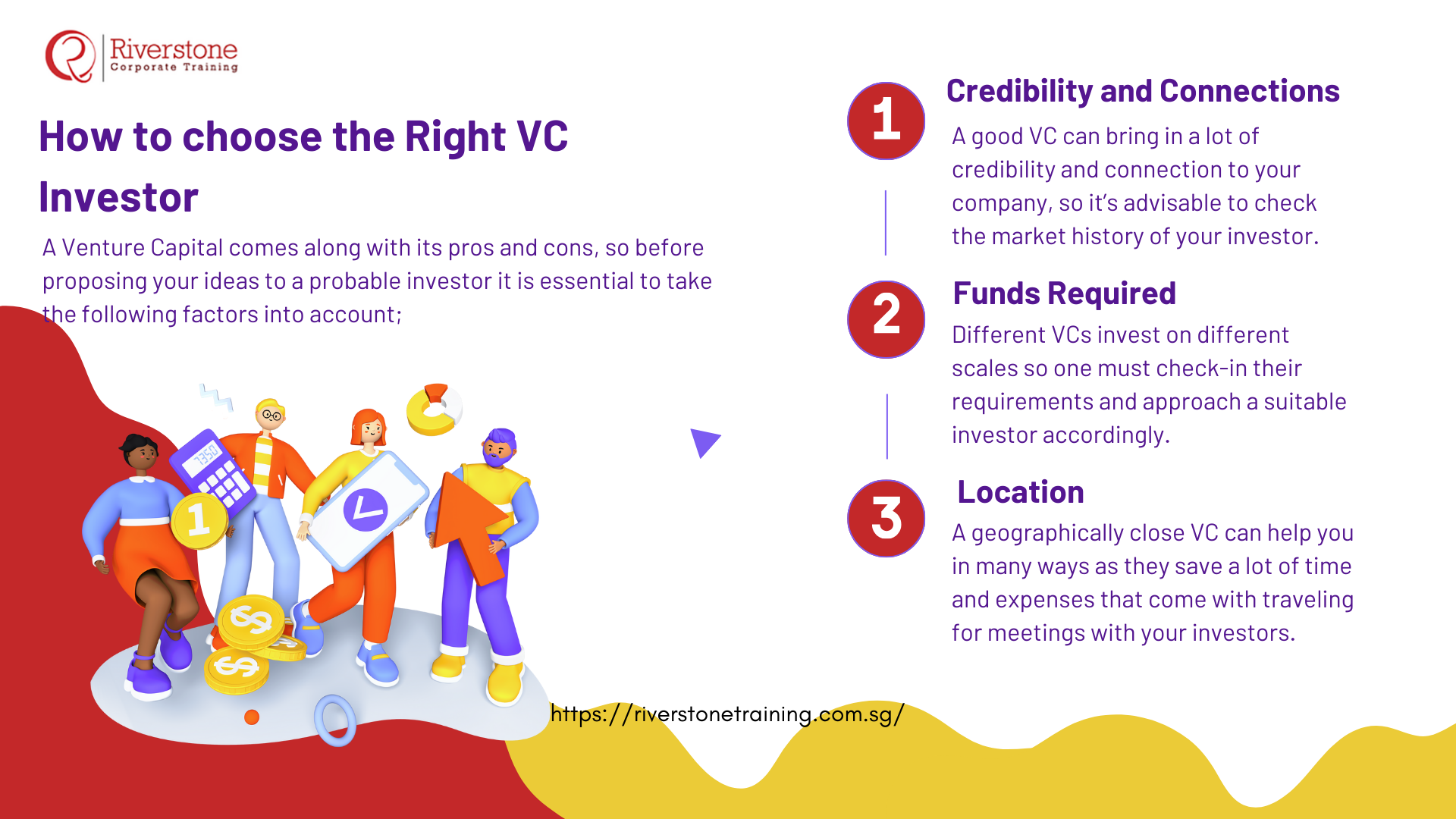
What is Venture Capital Funding?
Venture Capital (VC) funding is the investment provided to start-ups or small businesses that have long term potential growth. These are a type of equity financing that allows budding entrepreneurs to raise funds. To fully understand how venture capital fits into broader funding and financial strategies, professionals can benefit from an all‑in‑one finance investment training Singapore program that covers equity financing, valuation, and strategic capital planning.
Venture capital comes in the monetary, technical, or managerial form provided by angled investors, investment banks and other financial institutions. VC considered to be a risk capital comes with a very high-return opportunity
Stages of Venture Capital Funding:
As every company is unique in its way, the different stages of Venture Capital Funding can vary, but in general, there are five primary stages of a Venture Capital Funding.
Seed Stage:
As the word seed suggests, it is the fund that will begin the growth of a start-up down the road. At this juncture, the entrepreneur puts in all the effort to convince the investors that their ideas are worthy of VC support. The amount funded at this stage is generally small.
Start-up Stage:
At this point, the companies are ready with their business plan and look to advertise their product or services through the final product is not prepared at the operational level. Typically the company ready with its prototype for the investors by now, and the Venture Capital Funding is utilized in further growth of the product.
First Stage:
Also known as the ‘Early Stage’ is the period around the companies’ market launch, when the start-up is about to have its first share of profit. The Venture Capital Funding received during this stage go directly to the manufacturing of products and the amount invested is significantly higher.
Expansion Stage:
Once the company starts to grow exponentially, the Expansion Stage comes in when VC funds procured to fuel the growth. Venture Capital Funding this stage is diverted to further expansion of the market and development of the product.
Bridge Stage:
The last stage of VC Venture Capital Funding comes once the company has hit market maturity, and the funds received at this stage used for mergers, acquisitions or IPOs. The investors also look to sell their shares and make fat profits or exit. Attending an M&A valuation and due diligence workshop can help founders and professionals understand how to position their company for successful exits and navigate complex acquisition strategies with confidence.
How VCs select Start-ups and Access Deals?
Investing in start-ups can be tricky at times keeping in mind the risks involved in it. So the question that arises here is how VCs select the companies they want to invest?
It turns out that these investors run a high-level quantitative and qualitative analysis of the potential prospects. The three primary grounds of evaluation are People, Product and Market —core qualitative company analysis factors Singapore investors prioritize when assessing a startup’s long-term viability and strategic fit.
Another big question that comes in the selection process is that as a Venture Capital, why the investor should be more interested in your team over any other organization with a similar idea. VCs generally run a few background checks to get to the answer to this question.
The uniqueness, background, and experience of the team come very handy in this situation. Investors tend to prefer the teams with a strong leader who has some prior experience in the field.
How to choose the Right VC Investor?
A Venture Capital comes along with its pros and cons, so before proposing your ideas to a probable investor it is essential to take the following factors into account;
- Credibility and Connections: A good VC can bring in a lot of credibility and connection to your company, so it’s advisable to check the market history of your investor.
- Funds Required: Different VCs invest on different scales so one must check-in their requirements and approach a suitable investor accordingly.
- Location: A geographically close VC can help you in many ways as they save a lot of time and expenses that come with traveling for meetings with your investors.
The Pros and Cons of Venture Capital Funding for Singaporean Startups
Venture capital may be a game-changer to many ambitious Singaporean startups, although it is important to grasp the whole picture. This article would present an even side of the advantages and disadvantages of the VC funding. We will explore the felt benefits, which include the availability of large sums of money, untold industry experience and networks. More importantly we shall also discuss the possible negatives, equity dilution, pressures to aggressive growth and some level of control loss. Through learning about these trade-offs, one of the topics in our finance classes, founders will be able to make better decisions on the future of their company in the competitive startup environment in Singapore. To deepen your understanding, consider joining a private equity and venture capital course Singapore that equips entrepreneurs with the skills to evaluate funding terms, dilution impacts, and growth expectations strategically.
Key Terms and Structures in a Venture Capital Term Sheet
Having venture capital is not only about the cash; it is all about the term sheet as it is a legal document outlining relationships between the founders and the venture capitalists. This topics would unravel familiar, but frequently tricky phrases often found in typical VC term sheet, applicable to transactions in Singapore. We are going to describe such things as pre-money or post-money valuation, liquidation preferences, anti-dilution provision, and vesting schedule. It is essential that founders are familiar with these important terms to safeguard their equity and investors learn what they are entitled to and how they may get higher returns. Our certified venture capital analyst course Singapore will make you feel ready to negotiate such crucial agreements, especially when combined with interactive eLearning modules design Singapore that enhance practical comprehension and real-world application.
Kickstart your journey in the investment world with our comprehensive career development venture capital training Singapore professionals trust to build strong foundations and long-term success in the VC industry.



